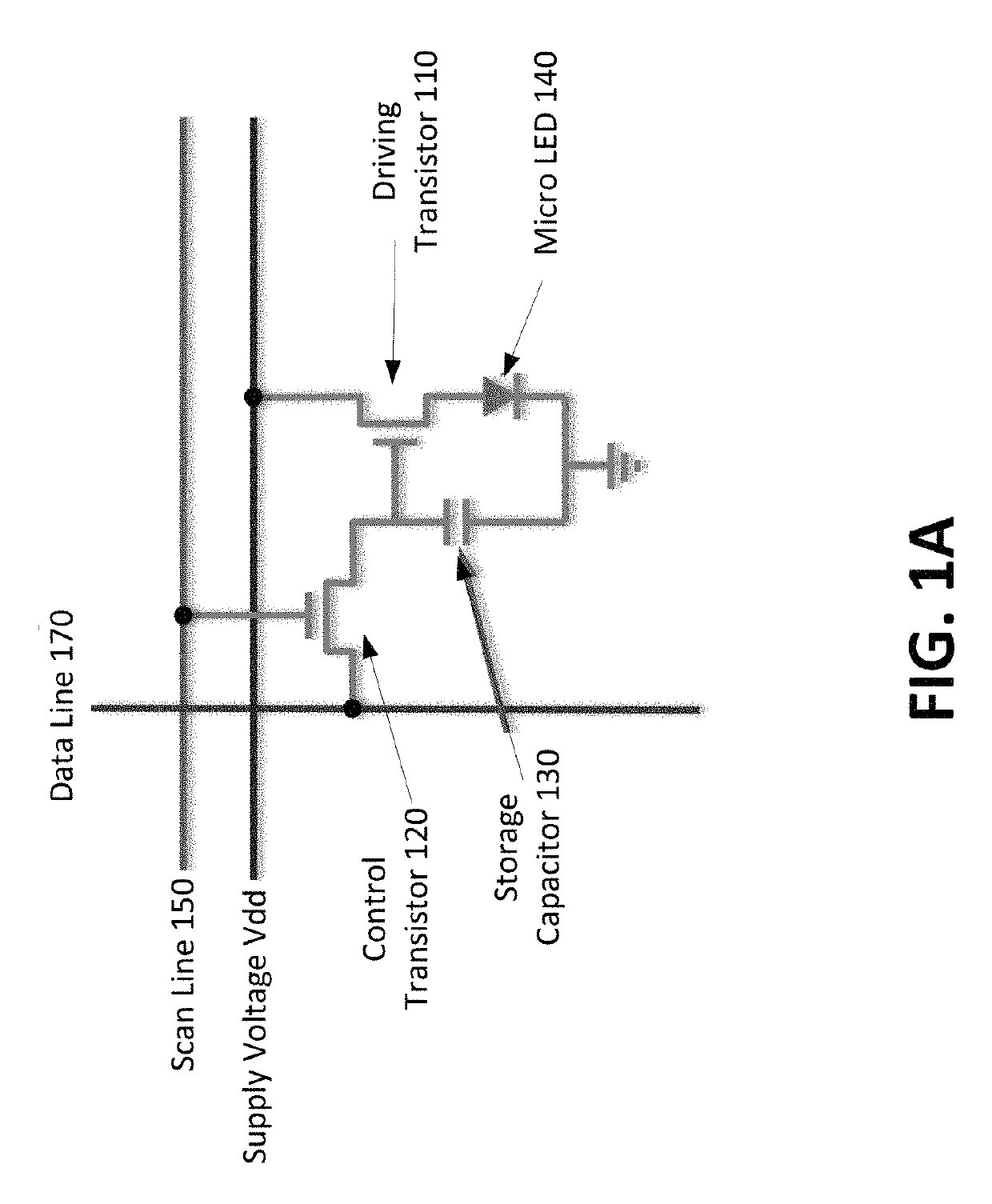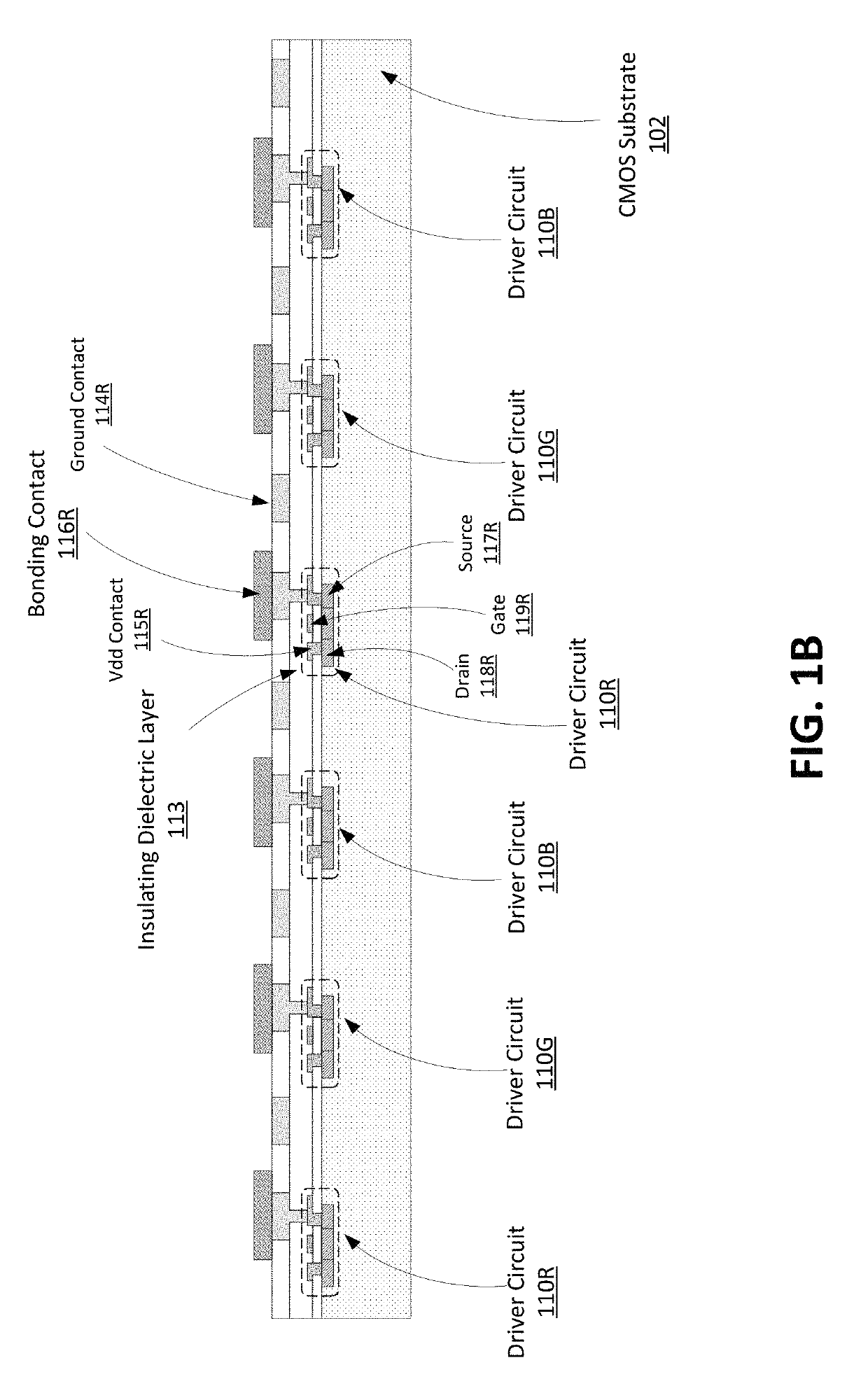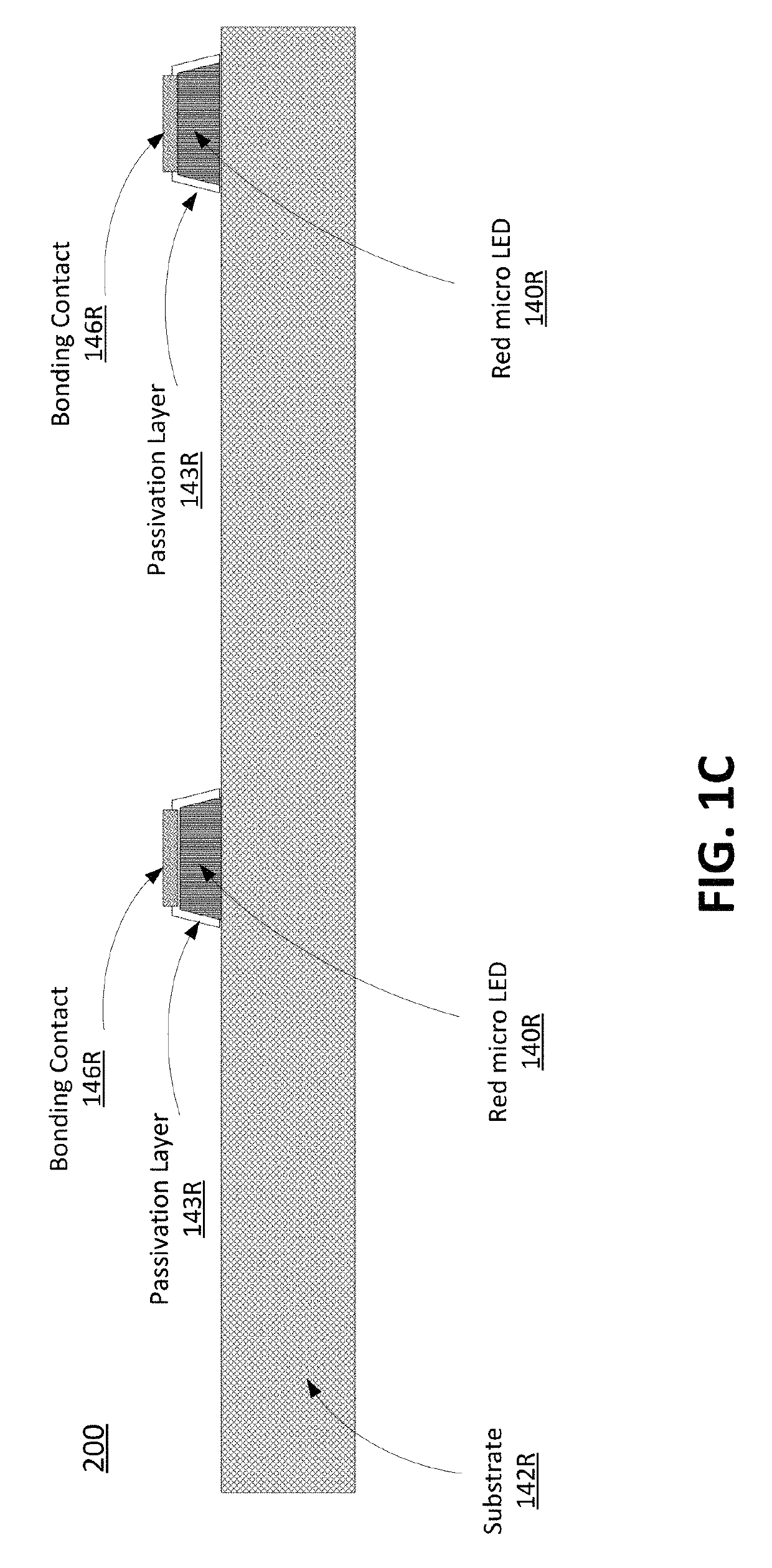Mass transfer of micro structures using adhesives
a micro-structure and adhesive technology, applied in the direction of semiconductor devices, basic electric elements, electrical equipment, etc., can solve the problems of limited battery operation time, low light efficiency, and high power consumption
- Summary
- Abstract
- Description
- Claims
- Application Information
AI Technical Summary
Benefits of technology
Problems solved by technology
Method used
Image
Examples
Embodiment Construction
[0026]The figures and the following description relate to preferred embodiments by way of illustration only. It should be noted that from the following discussion, alternative embodiments of the structures and methods disclosed herein will be readily recognized as viable alternatives that may be employed without departing from the principles of what is claimed.
[0027]The following examples primarily use an integrated micro LED display in which array(s) of GaN micro LEDs are attached to CMOS pixel drivers by eutectic bonding, but these are just examples and the techniques described are not limited to this particular application. Examples of micro LEDs include GaN based UV / blue / green micro LEDs, AlInGaP based red / orange micro LEDs, and GaAs or InP based infrared (IR) micro LEDs. Additional examples of micro LEDs and other micro structures are described in U.S. patent application Ser. No. 15 / 135,217 “Semiconductor Devices with Integrated Thin-Film Transistor Circuitry”, Ser. No. 15 / 269,...
PUM
 Login to View More
Login to View More Abstract
Description
Claims
Application Information
 Login to View More
Login to View More - R&D
- Intellectual Property
- Life Sciences
- Materials
- Tech Scout
- Unparalleled Data Quality
- Higher Quality Content
- 60% Fewer Hallucinations
Browse by: Latest US Patents, China's latest patents, Technical Efficacy Thesaurus, Application Domain, Technology Topic, Popular Technical Reports.
© 2025 PatSnap. All rights reserved.Legal|Privacy policy|Modern Slavery Act Transparency Statement|Sitemap|About US| Contact US: help@patsnap.com



